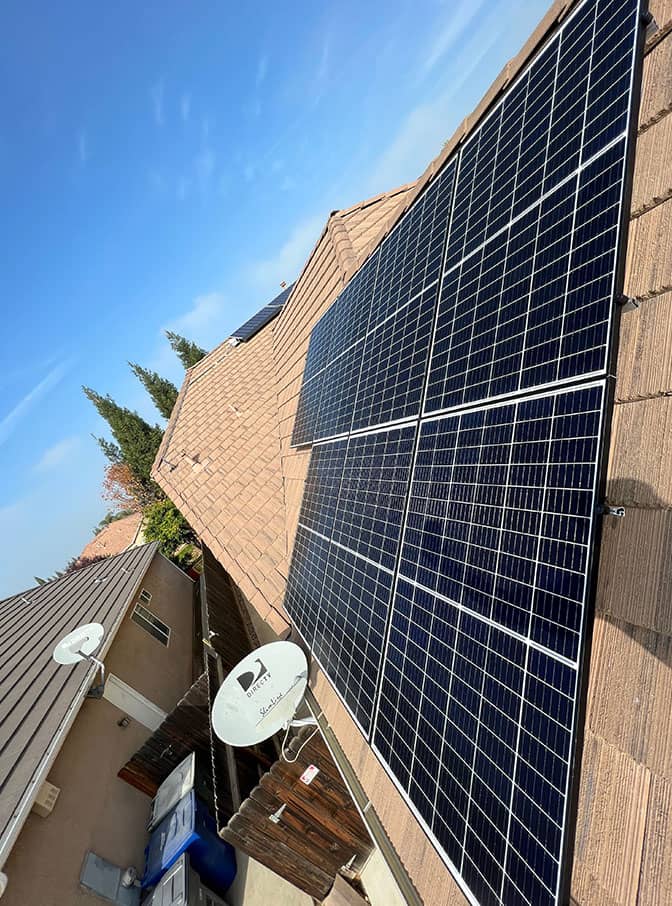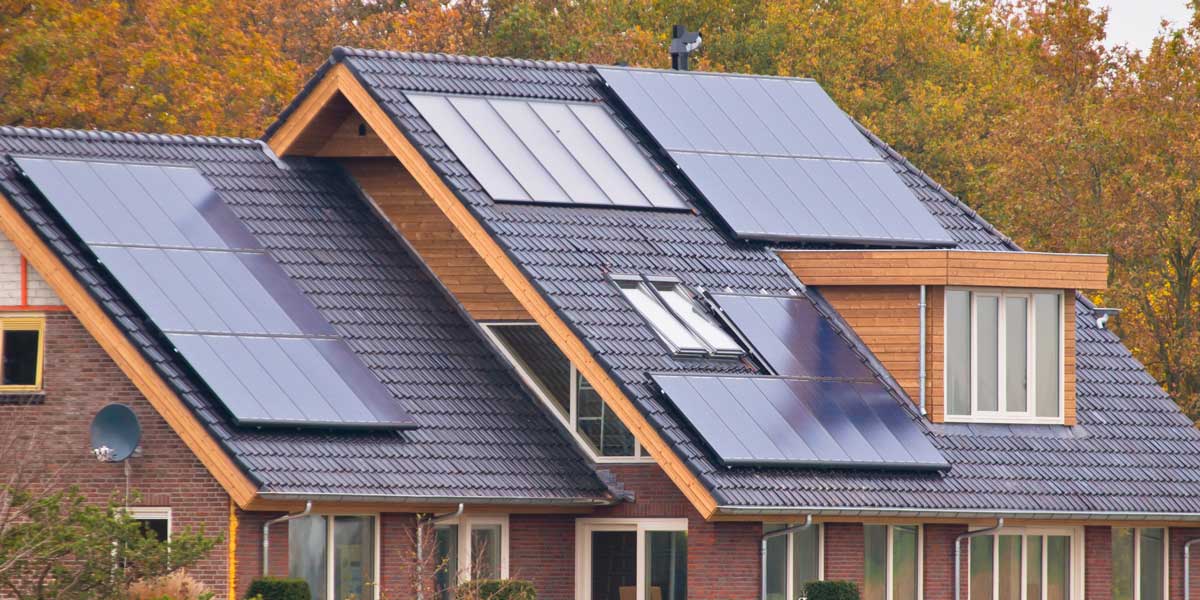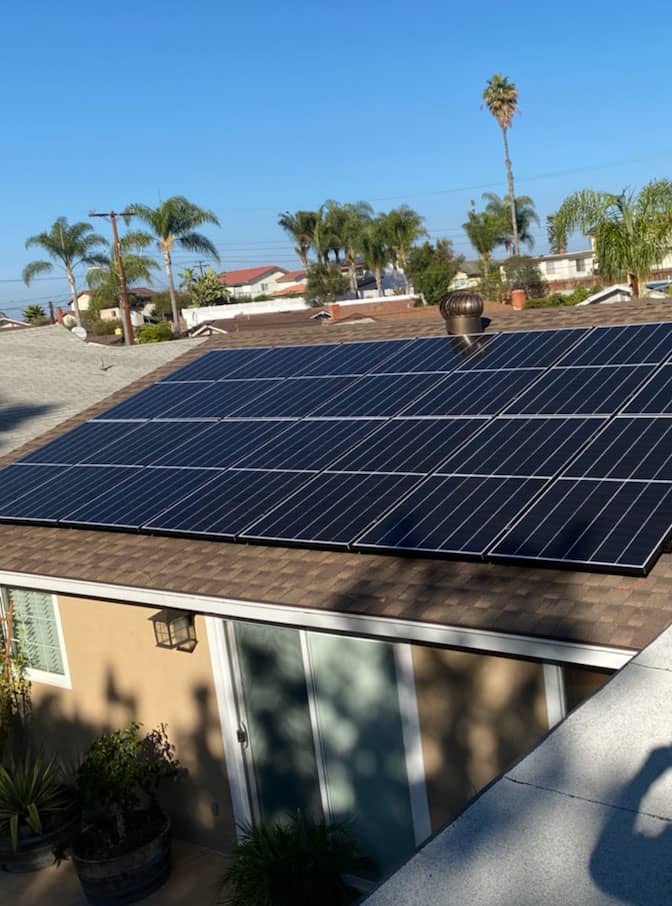
How to Use the Federal Solar Tax Credit in 2022
Key Takeaways:
- This ITC extension will spur more growth and help consumers & companies.
- The tax credit is equal to 30% of the cost of the installation & the solar energy system.
- Currently, the tax credit is available until 2023 for residential & commercial taxpayers.
- This tax credit has been provided under The Inflation Reduction Act
- This tax credit has been provided under The Inflation Reduction Act You need to get an estimate from a qualified company like Local Solar before the end of 2022 if you want to claim it on your taxes next year.
The Inflation Reduction Act
The Inflation Reduction Act is a federal law that provides a tax credit for solar energy investments. It is intended to spur more growth and help consumers & companies.
The tax credit is equal to 30% of the cost of the solar panel installation, and it applies to both residential and commercial buildings. The tax credit will apply for 10 years from the date of installation, or until 2023.
The tax credit can be used in conjunction with other state or local government programs, but it cannot exceed the total amount of your investment. This means that if you are eligible for a state rebate, that amount will be deducted from your total before calculating your credit amount.
Federal Solar Tax Credit 2022
The federal solar tax credit was introduced in 2006 to encourage homeowners and businesses alike to invest in solar energy. This tax break can be used for residential or commercial projects, but you need to get an estimate from a legitimate solar panel company like Local Solar before the end of 2022 if you want to claim it on your taxes next year.
What Is A Federal Tax Credit?
The ITC is a solar investment tax credit, not a deduction. That means that you can claim a percentage of the cost of a solar panel system installed on your home or business as an itemized deduction on your taxes in 2022.
Not too many people understand how the solar tax credit works. It is something taxpayers can use to their advantage when installing a solar system for their home or business. We highly recommend taking advantage of this solar investment tax credit while you can. As we know, the federal government may decide to change this law after 2023. There are no guarantees!
Take Advantage Of Federal Tax Credits
The goal of this federal solar tax credit is to reduce pollution and increase energy independence in the United States by encouraging people to install more clean technology at home.
It allows you to deduct 30% of your total system cost from your annual taxable income. This includes the cost of installation and solar equipment. This ITC combines energy efficiency with saving on federal taxes. It's a no-brainer.
You might be thinking: “I already have enough things to keep track of when doing my federal income taxes. I don’t need this one too!” But not many people realize that if they install a solar PV system, they can apply for a federal tax credit that lowers their overall bill by 30%.
That is a significant tax refund! Solar incentives like this are yet another reason to consider making the switch to a more energy-efficient lifestyle. Invest in renewable energy while saving on your federal income taxes.
2022 Federal Tax Return
However, because there are no deductions for 2022 taxes yet (you can't file them until 2023), you'll have to wait for next year to take advantage of this solar tax break.
The ITC encourages people to make home improvements that harness clean, renewable energy by adding on to the existing solar savings.
It's a tax credit that can be used when filing your annual income taxes, but it is not a dollar-for-dollar reduction. This ITC is similar to many other incentives related to a federal tax deduction. The total ITC is 30% of solar installations and eligible expenses i.e. the solar pv panels.
Federal Tax Credit For Solar Panels 2022
The ITC is a federal investment tax credit, which means it's based on the amount of money you spend on eligible products and services (like solar systems). According to a report by the U.S. Department of Energy (DOE), “The investment tax credit (ITC) has been one of our most effective policies for spurring private sector investment in renewable energy technologies."
The ITC was first introduced in 1992 with the idea of encouraging homeownership through home improvements—and not just any type: the DOE wanted homeowners to invest in home renovations that would lower utility bills and provide environmentally friendly alternatives to electricity generated by fossil fuels like coal or natural gas plants. The benefit here? You could get a refundable tax credit worth 30% of your total cost if you installed solar panels or another qualifying technology!
ITC For Solar Installation
The federal solar tax credit is available to anyone who installs a solar system at their home or business. The credit reduces your tax bill by either 30% or 26% depending on which type of equipment you use (grid-tied or stand-alone). It also applies whether you're building new construction or upgrading an existing structure
Federal Solar Tax Credit Extension
The federal solar tax credit is a reduction in your total tax liability, not an outright rebate or deduction. The credit is available for all photovoltaic (PV) and solar water heating systems installed on or after January 1, 1993, but only one system per residence can be included. The credit is also only available for residential properties, so if you have a commercial property with solar panels installed on it you won't be able to claim this tax benefit.
One important thing to note: the federal solar tax credit was not extended past 2022 as part of the Tax Cuts and Jobs Act passed in late 2017; however some states still offer their own state-level credits that can be combined with the federal one when applying for rebates (depending on whether you live in California or New York).
Some homeowners might be able to qualify for a larger credit if they have other energy-efficient improvements planned for 2021.
Commercial Eligibility For The Federal Credit
To be eligible for the business ITC (section 48 of the tax code), the solar PV system must be:
- Used by a business subject to U.S. federal income taxes (i.e., it cannot be used by a tax-exempt entity like a charity)
- Located in the United States or U.S. territories (though can only be used against federal income tax obligations)
- Systems must use new and limited previously used equipment4
- Not used to generate energy for heating a swimming pool.
There is a sliding scale in terms of the percentage of the tax credit you will receive as a business, which is determined by a number of factors including the type of business and gross income during the tax year.
Remaining Credit Options For Other Home Improvements
If you have other energy-efficient improvements planned for 2022—such as new windows, insulation, doors, or sealing up air leaks in your home—you might be able to qualify for a larger tax credit than what we've discussed above.
The reason is that the IRS only allows you to claim one type of improvement per year under its solar tax credit program. So if you plan on doing both solar and HVAC work this year, for example, you can't deduct both as part of your installation costs (unless they're done by separate contractors).
But there's good news: You can still claim one type of improvement on your taxes and then take advantage of another kind next year.
Just keep in mind that this doesn't mean all types of improvements are eligible for the full 30% federal tax credit; some may qualify only at a reduced rate or not at all depending on their classification by the IRS. So, time your other home improvements wisely to use this ITC in a subsequent tax year.
Conclusion
The federal solar tax credit is the best way to save money on your solar installation. It's important that you understand how it works and how much money you can save by taking advantage of this opportunity before it expires in 2023. If you're interested in finding out more about this program and how you can use it when installing solar panels at home or at work, get in touch with Local Solar today!









